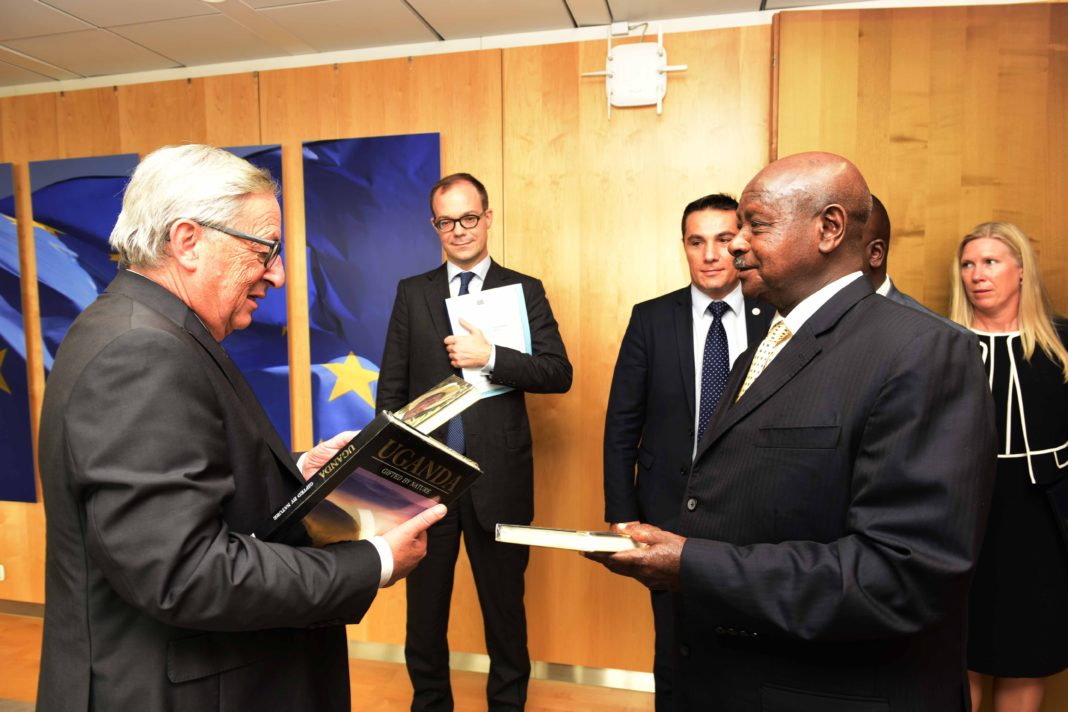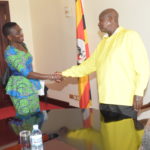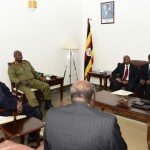President Yoweri Museveni has met the European Union (EU) Commission President Jean-Claude Juncker and presented a draft of concerns raised by East African Community member states on the Economic Partnership Agreements (EPAs).
Leading a delegation of EA trade ministers to the meeting at the EU headquarters in Brussels, Museveni, who is also Chairperson of the EAC, noted that the bloc sought several clarifications before making a final decision on the EPAs.
Key among the concerns is the question of strategic industrial development, the denunciation process, development agenda, the rendezvous, joint declaration and domestic support.
On strategic industrial development, Museveni noted that once the trade pact is signed, up-to 65% of imports (mainly machinery and raw materials for industrialization) from the EU to EAC will come in at zero rate, similar to the current policy position East Africa already has with the EU. “What happens when EAC partner states start producing these items and now need to protect them after signing the EPAs?” Museveni asked.
Another concern for East Africa, noted Museveni, is the fact that the EPAs does not allow individual countries to exit. “The denunciation clause should allow individual signatory states to withdraw from the agreement,” said Museveni.
As far as the development agenda is concerned, President Museveni said the EPAs clauses on the European Union supporting structural and infrastructural development in East Africa are non-binding yet these are crucial for leveling the ground for equitable trade.
EAC states also raised issue with the fact that the EPAs direct that negotiations must be concluded within five years after entry into force of the agreement. This rendezvous clause, said President Museveni, imposes unlimited pressure on negotiators “rather than paying attention to substance of the negotiations.”
On joint declaration, the EAC wants clarification on an annex that obliges the community to negotiate with countries that the EU has Free Trade Agreements with.
“This is far beyond what is politically tenable in the EAC and should be removed,” President Museveni told Mr Juncker.
Also of concern to EAC, said Mr Museveni, is the clause that commits the EU to remove export subsidies on EAC-destined exports only but does not address other forms of domestic support that equally distort the market.
“This makes EU products competitive in the EAC market,” said President Museveni. “But EAC products cannot be competitive in the EU market due to other domestic support provided by the EU.”
He added: “Moreover, with regard to these export subsidies, the prohibition is not permanent and will be reviewed after 48 months.”
The President also made the case that Kenya, which had already signed these pacts, should not be disadvantaged in terms of trade, “nor should EU stampede EAC into hurried conclusions which would result into dissensions and possibly split the EAC”.
Mr Juncker, promised to review all issues raised by the EAC and offer a comprehensive response.
On the team was Uganda’s trade minister Amelia Kyambadde and her colleagues Adan Mohamad (Kenya), Prof Palamagamba Kabudi (Tanzania) and Alain Nyamitwe, the Burundian Minister for External Relations. Rwanda and South Sudan sent high-level government bureaucrats.
Upon receipt of a response from the EU, President Museveni will again convene the meeting of the trade ministers to trash out the key issues before preparing a final document for the EAC heads of state.
The EAC heads of state summit will then take a final and binding position on the EPAs whose text was first initialed in 2014.







